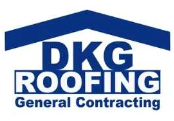Residential roofing is one of the most important investments that a homeowner can make in their property. A good roof not only protects your home and family from the elements, but it also adds to its overall value and aesthetic appeal. However, with so many options for materials, design, and techniques, choosing the right residential roofing solution can be a daunting task. In this article, we will discuss the top considerations to keep in mind when planning your residential roofing project.
Budget: Before you begin your residential roofing project, it is important to set a budget. Roofing costs can vary widely depending on the materials, design, and size of your roof, so it is essential to determine what you can afford before you start. Be sure to factor in the costs of both materials and labor, as well as any additional expenses such as permits or inspections.
Climate and Weather: The climate and weather in your area will have a significant impact on your roofing choices. For example, if you live in an area with harsh weather conditions, such as high winds or heavy rain, you may need to invest in a more durable roofing solution to protect your home from damage. On the other hand, if you live in a milder climate, you may be able to opt for a less expensive roofing solution.
Material Options: There is a wide range of roofing materials to choose from, including asphalt shingles, metal roofing, clay or concrete tiles, and wood shakes, to name a few. Each material has its own unique benefits, drawbacks, and costs, so it is important to consider your specific needs and budget when choosing a material. For example, if you are looking for a roofing solution that is both durable and affordable, asphalt shingles may be the right choice for you. If you are looking for a roof that is more energy-efficient, metal roofing may be a better option.
Roofing Design: Your roofing design will impact both the functionality and aesthetic appeal of your home. For example, a gabled roof with a steep pitch may be more functional in areas with heavy snow, while a flat roof may be more aesthetically pleasing in a contemporary home design. When choosing a roofing design, consider your home’s style, climate, and budget to find the right solution for you.
Energy Efficiency: A good roofing solution can also help improve the energy efficiency of your home. For example, if you live in a hot climate, a reflective roofing material can help reduce the amount of heat absorbed into your home, reducing your cooling costs. If you live in a cold climate, a properly insulated roof can help reduce your heating costs. Consider your specific energy needs and budget when choosing a roofing solution.
Hiring a Professional Roofer: Working with a professional roofer is one of the most important considerations for your residential roofing project. A professional roofer will have the experience, expertise, and equipment to install or repair your roof to the highest standards. They will also be able to provide valuable advice and recommendations to help you make informed decisions about your roofing project. When choosing a roofer, look for one with a good reputation, a commitment to customer satisfaction, and a warranty on their workmanship and materials.
In conclusion, residential roofing is a significant investment in your home and family’s safety and comfort. By considering your budget, climate and weather, material options, roofing design, and energy efficiency, and hiring a professional roofer, you can ensure that your residential roofing project is a success and that your roof is a functional and beautiful part of your home for years to come.








